by Giuseppe Orlandini and Mirella Lino
This is a “Letter to the world” by Mirella Lino, a resident of Mariana, written three years after the Bento Rodrigues dam disaster, when an iron ore tailings dam suffered a catastrophic failure, flooding a vast area of Brazil with toxic mud. Her words convey the consequences on personal and family lives of one of the worst “environmental crimes” in the history of mining.
Some context
Three years ago, on November 5 2105, around 15.30, in the small town of Mariana, in the central region of the State of Minas Gerais, Brazil, a loud rumble is heard. A dam containing the toxic residues of the iron mining activities of Samarco S.A. – a joint venture between the Brazilian Vale S.A. and the Anglo-Australian BHP Billiton – crumbles. Shortly after, about 50 million cubic meters of toxic mud burst out in a devastating flood, generating the most severe socio-environmental disaster in the history of Brazil, and of mining.
It’s a triple record: the volume of leaked toxic mud; the length of its route – more than 650 km until the mouth of the Rio Doce and spreading over 100 sq./km in the Atlantic Ocean; and the estimated damages – 20 billion reais (about 5.2 billion dollars) according to estimates by the Federal Government. Besides causing the immediate death of 19 people and an abortion, the toxic mud has affected the lives of farmers, fishermen, artisans, traditional communities, indigenous peoples, breeders and tourism workers – the so called atingidos, who all depended on the river and the sea for the material and symbolic reproduction of their ways of life. Overall, about 500.000 people in 39 municipalities are hit directly or indirectly by the outcome of what many victims tirelessly define as a socio-environmental crime.
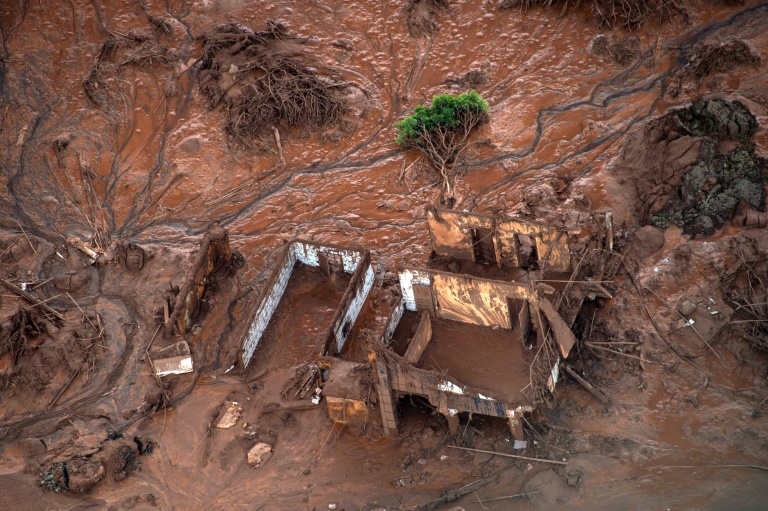
The collapse of the Samarco dam has wiped out the village of Bento Rodrigues (ph: Márcio Fernandes/Estadão)
The disaster, or the crime, of Mariana is the nefarious symbol of the “extractivist” pressure that has held territories and populations of large parts of Brazil hostage for centuries, thanks to the promise of social development, work and royalties derived from the exploitation of mineral deposits. Until now, with a few nuances, the policy of extractivism has obtained the consensus of the totality of Brazilian political forces, leading to negligence and omissions by companies and State control apparatuses.
Unfortunately, with the victory of the right-wing extremist Jair Bolsonaro, who has expressed the desire to eliminate the Ministry of the Environment – subordinating it to that of Agriculture – and to ease the concessions for exploration and mining in natural reserves and indigenous territories, the radicalization of the pressure on environment and local populations will produce increasingly devastating consequences.
After three years, the victims of the disaster still live in difficult conditions and struggle for justice and for the recognition of the totality of social and environmental reparations. Mirella Lino is from Ponte do Gama, a rural area within the municipality of Mariana. Together with her family, she was forced to leave her house, which was filled by toxic mud. This is her “letter to the world”, written on the third anniversary of that fateful November 5, 2015.
***
This is just an attempt to get attention! Hey world, do you remember that mudslide, on November 05, 2015, in a little town in the interior of Brazil? Three years have passed and the situation is still dire. All that we witness today is impunity, desolation, anguish, uncertainty, confusion and a sore throat from swallowing our tears. Far from the external glances, suffering still reigns. Far from the spotlight of the moment when the “BOOM” of the largest mudslide in the country resounded, perhaps the largest of the world, people still struggle to stand in this fight against giants.
Every night is like a refuge – when you can sleep – actually the only moment of rest. The moment I lean my head on the pillow I ask hard for this to end all at once, but it is only a cry. Deep down, I attempt to make my body understand that this is real, because most of the time it sounds like a nightmare. But every dawn also brings with it anguish: one more day I get up and the only certainty I have is that I’ll face another episode in this terror series. What will be the monster of today? I do not know. All I know is that the plot is still the same, and the ending shows itself more and more distant.
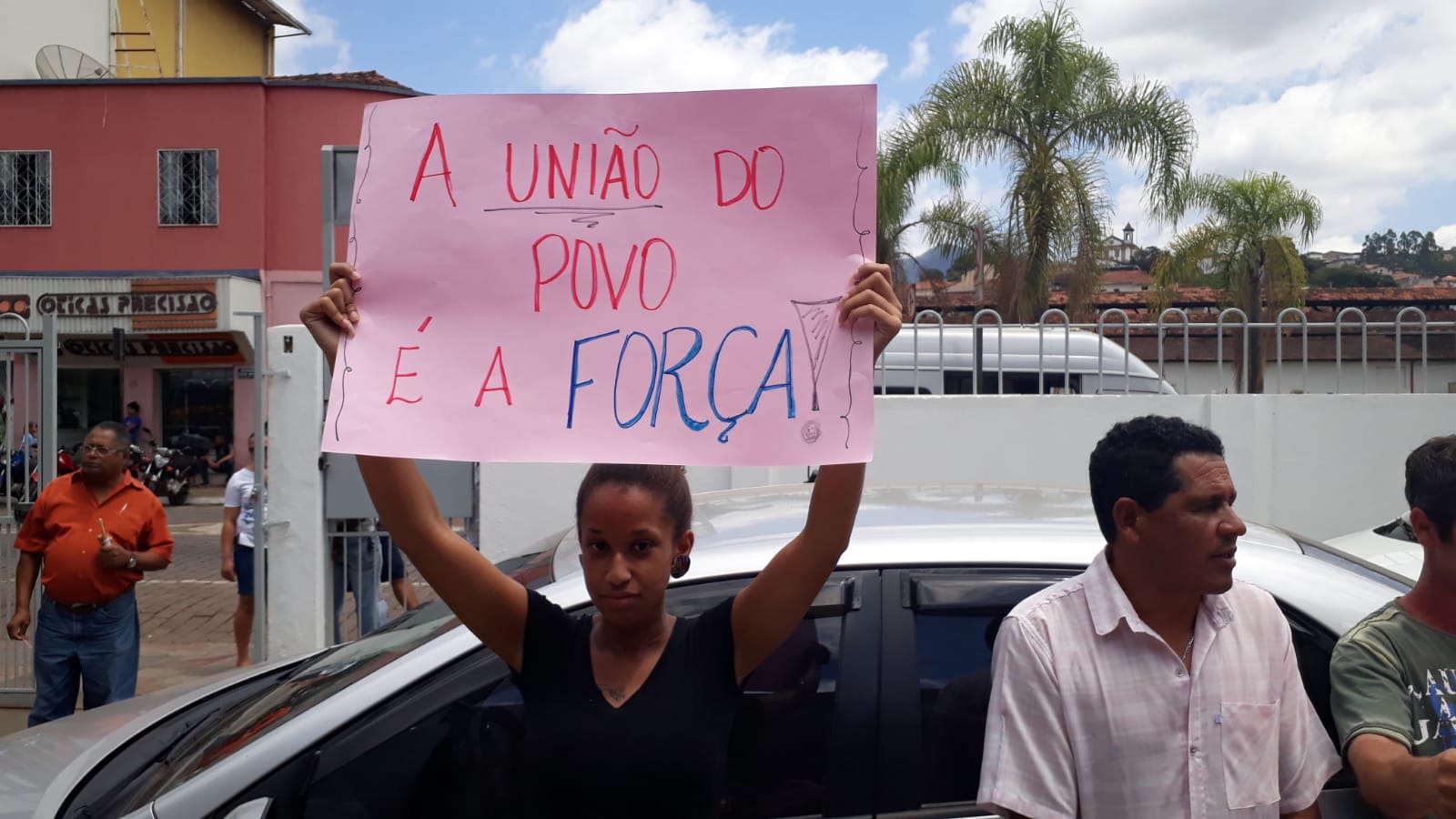
Mirella during a demonstration for full reparations, in Mariana on October 2, 2018 (ph: Giusppe Orlandini)
At age 20, I saw a tsunami stealing my youth. Not enough the adventures to discover adulthood, not enough the difficulties of “becoming a woman” with the face of a girl still. I had to become a woman with the face of a girl in a struggle to get back everything that my family built in years. Growing up in the wild, seeing a sick father clogged up with medicine to control his depression, which has come up over the past three years, seeing a visibly shaken mother forcing herself to stay strong so she will not see her family collapse, far from home, and suffering all sorts of prejudice in the new place. Seeing your younger brother start hating you for no reason one day after the break-up. Watching your brothers having to change school because their new class-mates called them “mud feet” and even went so far as to say that their father had lost his job at the mining company because of them.
Well … if I were to speak in detail of everything I live through here in the interior of Brazil, I would write a whole book in 10 volumes and there would still be something to be said. But I just want to make an appeal. The situation has not been solved! Those stricken – whom the criminals insist on calling “shocked” – live in a sea of daily confusion. Meetings, padding and illusion, tiredness… a lot of tiredness… physical and psychological. Sad statistics confirm worrying rates of suicide, depression, anxiety disorder, panic syndrome and other forms of mental illness.
Three years are not three days, three years far from home are not three years in an exchange program, three years without expectations kill many dreams. It is not as simple to conceive as the perpetrators think. It may look like a glass of water was simply splashed at a person, when in fact the water from that glass was brutally thrown into that person’s face. That is why we are hit and not merely impacted! As Chico Buarque said:
“There are days when we feel like those who left or died/ people stopped suddenly or it was the world that changed/ we want to have an active voice/ to order our future/ but here comes the wheel of life and carries the destiny there…”
Strange how a song created at the height of resistance against the military dictatorship in the 1960s in Brazil can make so much sense in my life today, 2018, in a somewhat different situation, except for the monopoly over the life of several communities, with all their culture and the history of generations, being held in the hands of great enterprises. But it does. The “wheel of life” is taking the destiny of thousands of people “there”, far from their identities, traditions, histories, affective bonds and, in short, life itself.
I am not from Bento Rodrigues, nor from Paracatu de Baixo. I am from Ponte do Gama, a community affected just as those others, but smaller, and consequently less worthy of attention. My little piece of heaven in the middle of the Earth. But we resist! We experience the consequences of it every day, not just on the anniversary of the crime. There is more life spent before and after 5/11 each year.
Amidst so much to feel and so much to think in the course of these three years; in more desperate moments comes the memory of the simple and perfect life that I used to live and, being very sincere, did not perceive or did not value as I should have done. Now, it looks like everything was so perfect… so… normal, that I could not imagine something close to what the burst of the dam has meant. I miss the air there, the window of my room that used to be my place for reading romance books, I need the calm that my place provided me, I need the relations of my little community. It was me and the land, me and nature, me and my most legitimate intimacy, me and my dreams of a teenage girl, me and… my life!
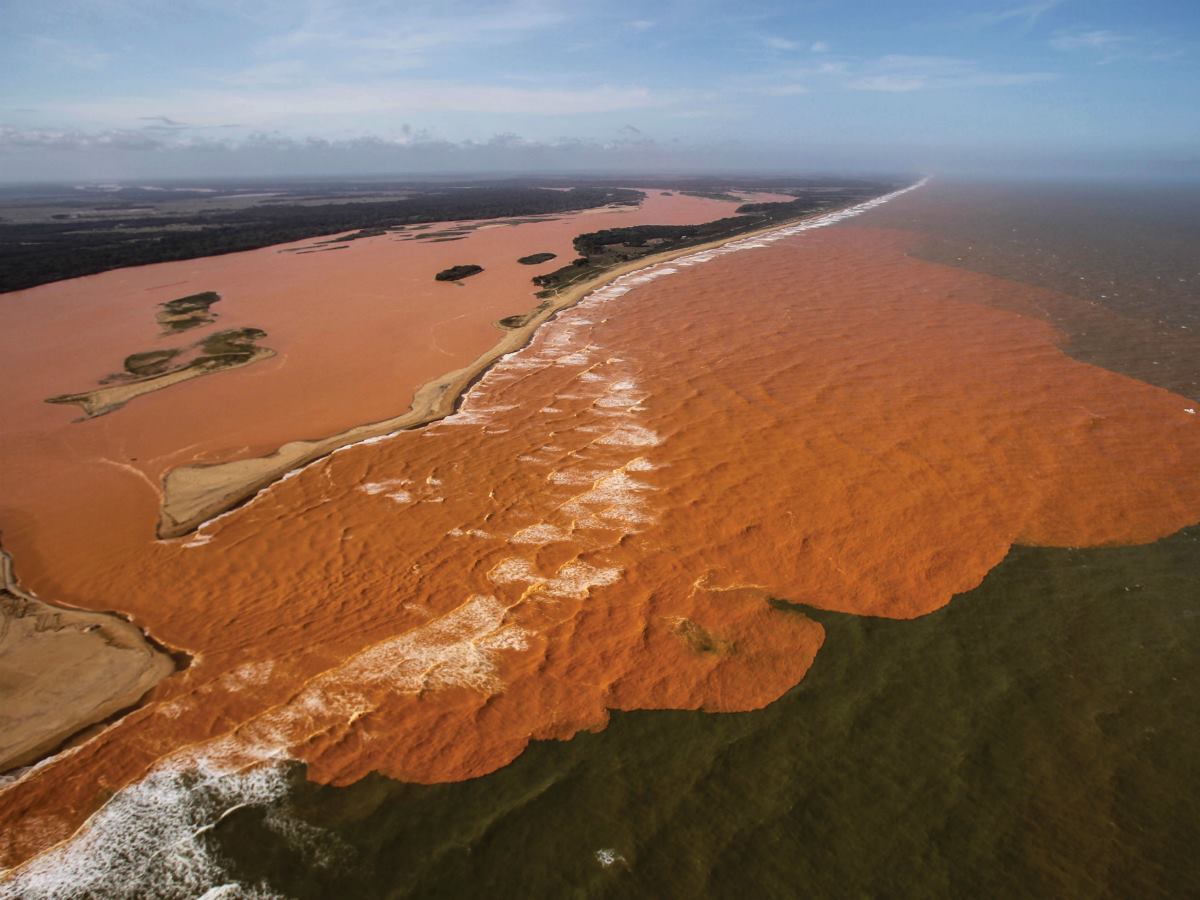
Rio Doce river mouth. The mud of the Fundão dam arrives in the Atlantic Ocean, in Regencia, Spirito Santo, Brasil. (ph: Gabriela Biló / Estadão Conteúdo)
Life that seems to be of no value at all when compared with the profit that a piece of paper bearing the stamp of the State represents; a life that seems to be something measured only by the material possessions that my family had or did not have in that place. A life that was abruptly crossed over at a sudden point, literally. This mud has come in my life sweeping 17 years of an immaterial beauty that I had built with solid bases on the red clay ground roads of Ponte do Gama. I was driven away from there, leaving family, friends and a large part of my atoms.
As if we were not already living through a very delicate moment here in Brazil. The election, a genuine tool of democracy, this year has brought us a threat. A man that came up with radical proposals was elected at a time when the Brazilian population, a large part of it, was disregarded by national politics. I shudder to see it all, harder times will sweep the country. I fear for having a female anatomy. I fear for holding a black skin. I fear for being involved in this confusion with a giant firm. And, I fear, despite all this, to still resist.
By the new government, such a crime will be slowly erased, forgotten, and characters such as Brilhante Ustra, the torturer of the military dictatorship in Brazil, will be exalted – as it once was. The rights violated will be reduced to little importance, less than today. The treatment of this case will be even more negligent and superficial. The restoration will only be a utopia for the affected. The dream of getting back a life – close to what it was before, because it will never again be the same, never – will continue being “taken there” by this “wheel of life”. But we do not have the chance to give up, we are tired but we know that there is a long way to go yet. Difficult yes, painful yes, but the only way. Until the sun will rise in the morning, we will resist.
So this is how Mariana is. Still suffering the consequences of the November 5, 2015 events. The Rio Doce is still dead! People’s lives follow a daily marathon! And the solution lies in every person that inhabits this planet, in an effort to think mining for social good, for the sake of nature. Sustainability is the word of the century but it’s a word difficult to practice, so on this day, marking 3 years since then, I invite everyone to think: MINING FOR WHAT, MINING FOR WHOM?
Mirella Lino, Mariana, November 5, 2018
***
Guseppe Orlandini is a PhD student in International Studies at “L’Orientale” University of Naples. He collaborates with the editorial staff of “Napoli Monitor” and is part of “Deco[k]now”, a Neapolitan collective focusing on the decolonization of knowledge. His research focuses on an analysis of the conflicts between different socio-ecological practices in territorial governance and the adaptation to socio-environmental disasters in Brazil.


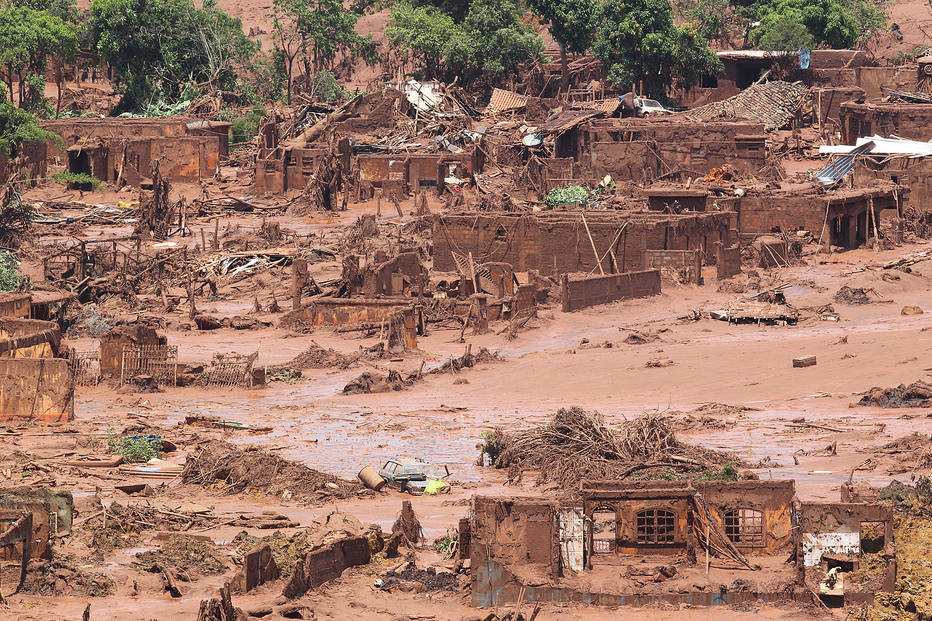
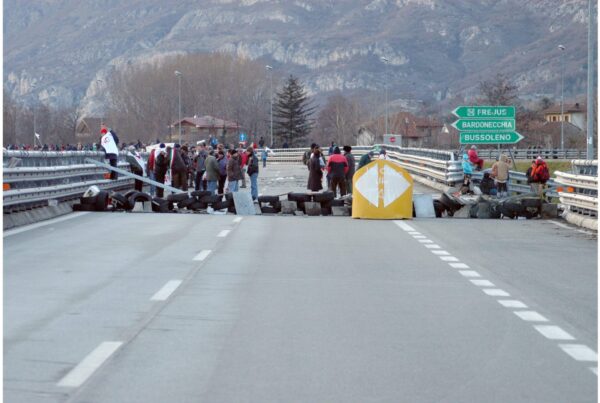

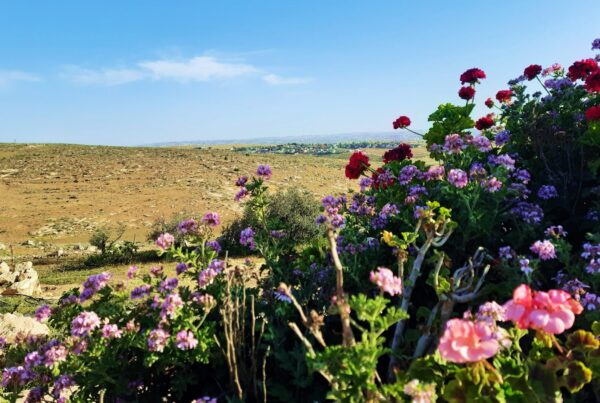
Reblogged this on POLLEN.